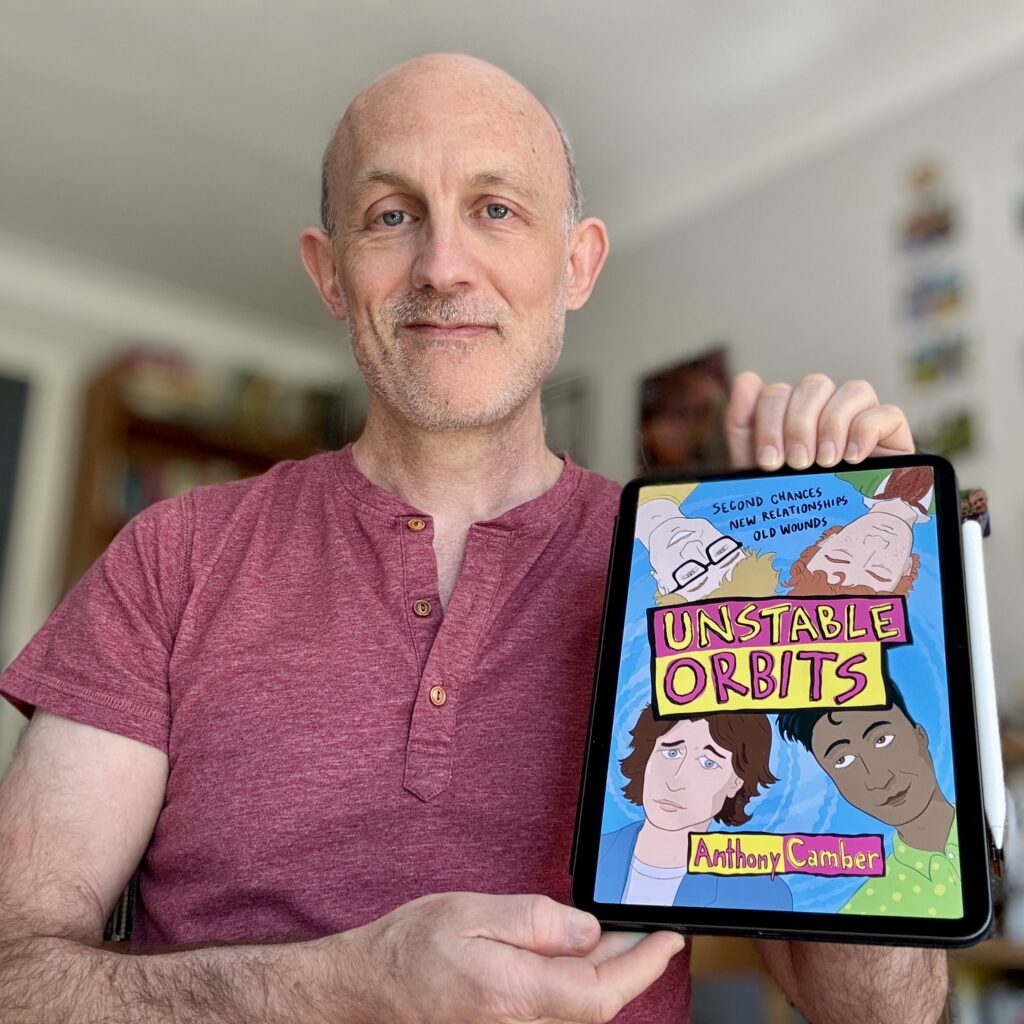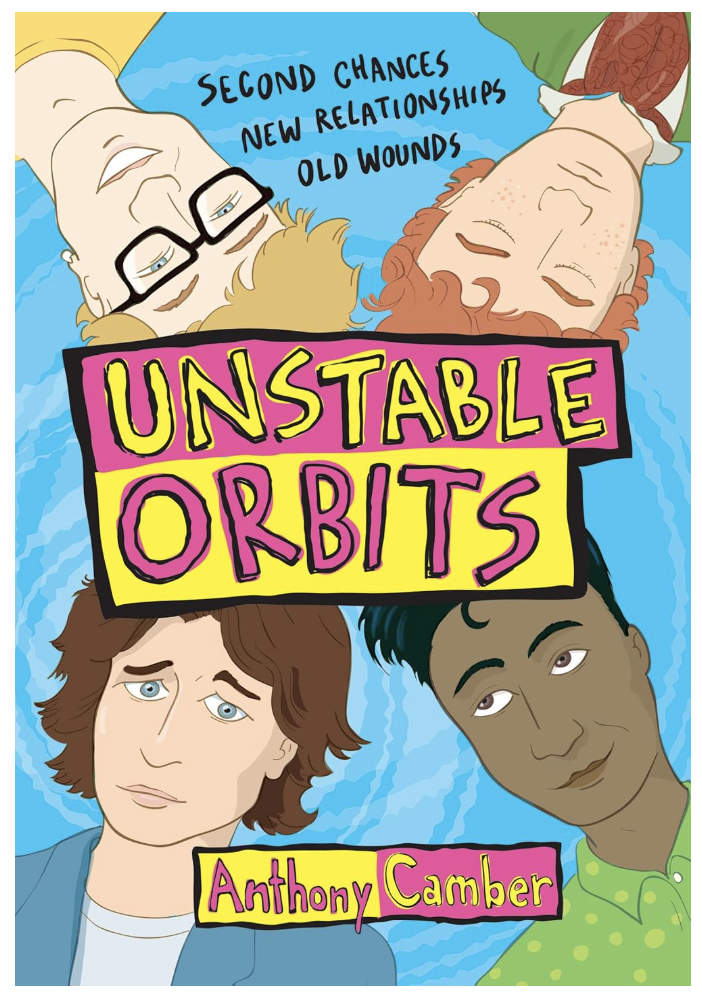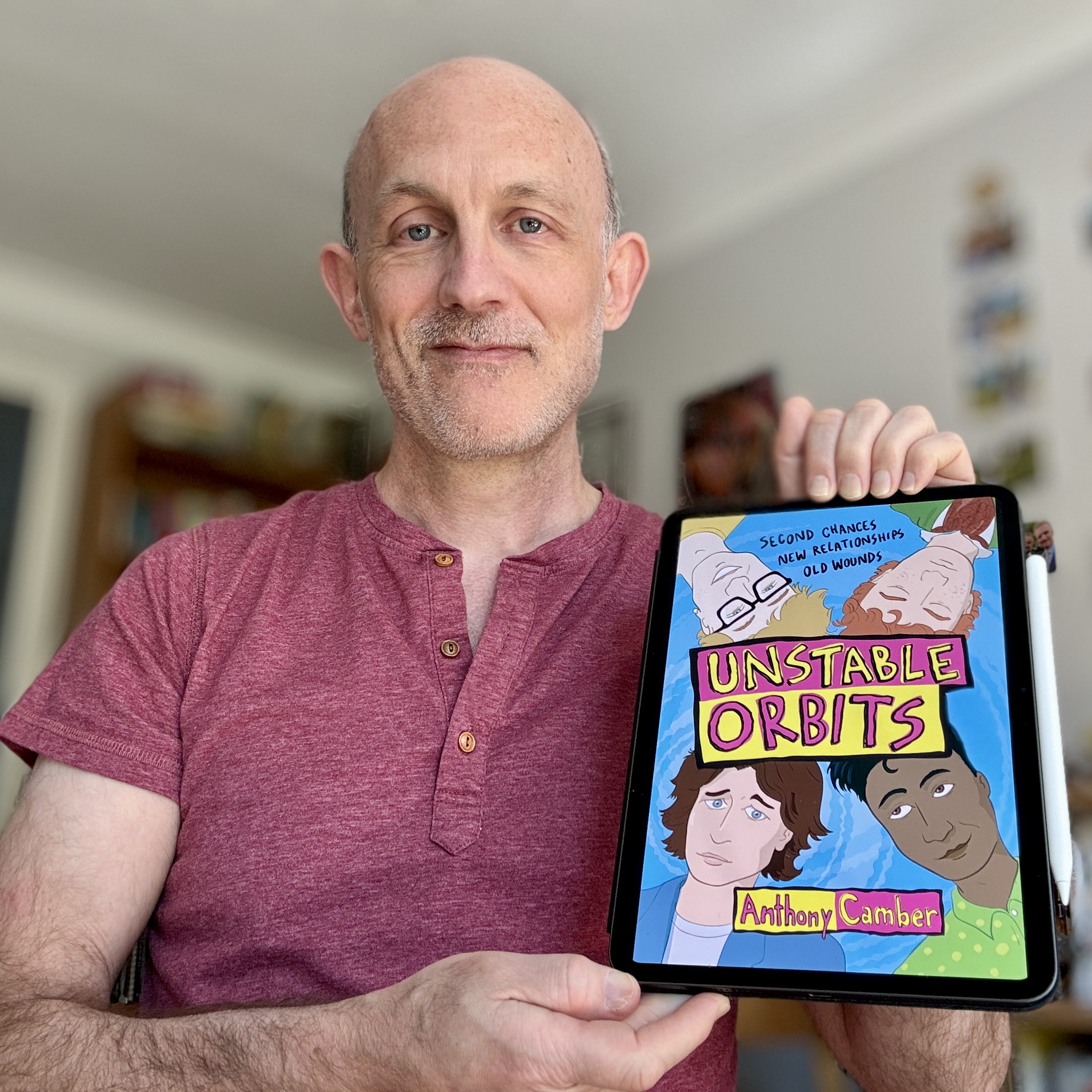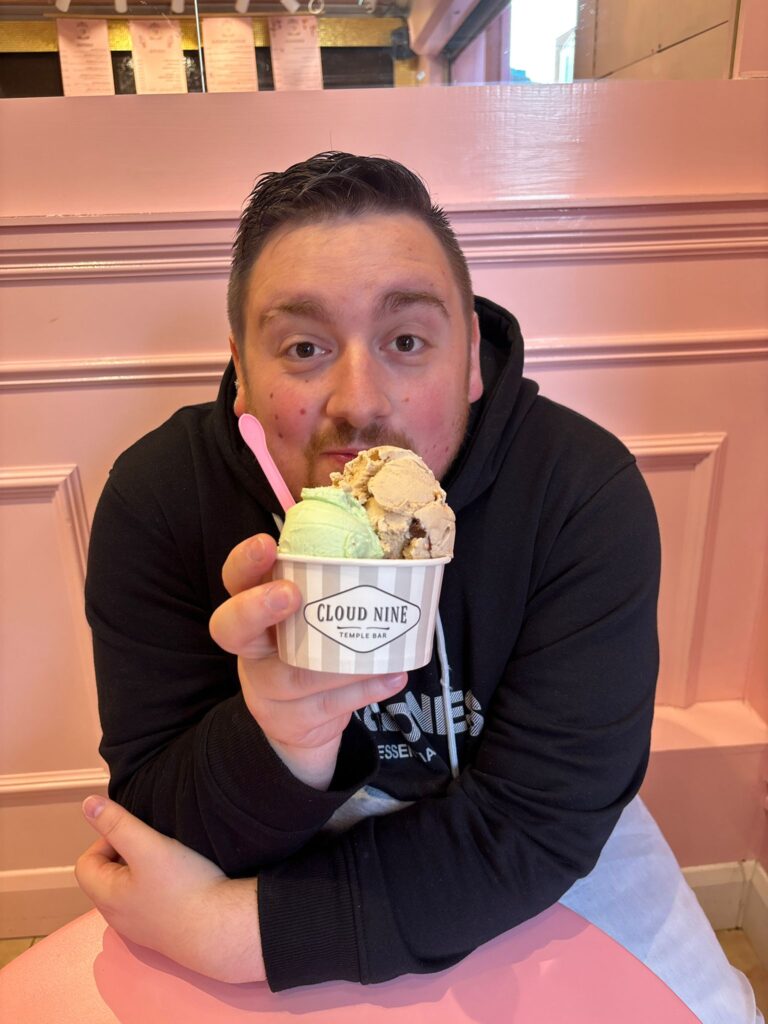Q&A with Anthony Camber – Author Interview
We’re excited to bring you an exclusive Q&A with the thought-provoking Anthony Camber, an author celebrated for his ability to weave deep emotional insight into bold, imaginative storytelling. With a style that blends literary finesse and raw honesty, Anthony explores themes of identity, connection, and chaos with a voice that feels both fresh and fearless. In this candid interview, he opens up about the inspirations behind his work, the challenges of creative vulnerability, and the power of fiction to reflect real-world truths.
Anthony shares his journey from early story scribbles to crafting impactful novels that push boundaries and stir conversations. With a sharp eye for character and a deep love of language, he discusses how he builds worlds that resonate with readers long after the final chapter. Whether you’re a writer seeking inspiration or a reader drawn to fiction that lingers in your thoughts, this conversation with Anthony Camber offers compelling insight into a literary mind that refuses to play it safe.
About The Author
Tell us more about you.
I’ve lived in Cambridge for most of my life now. After school in Hertfordshire and Northamptonshire I went to Downing College, Cambridge to study Computer Science. On graduating, I went back to live with my parents while I searched for a job. It took a while, but I found the perfect role for me as a Technical Author at a small software company in Cambridge. Before long I moved to the city, and despite several job changes I haven’t left.
It’s fascinating to think about how much and how little it’s changed in that time – over 30 years now. Back in my college days nobody had laptops or mobile phones, and there were no coffee shops full of students on WiFi. The city has expanded a great deal, but the colleges are mostly the same, at least on the outside. Not so long ago I had the chance to peek inside my old first-year room at Downing, and the changes blew my mind – it’s like a hotel room now.
What are the three items you’d take on a deserted island?
I suppose I’m not allowed the obvious items like laptop, WiFi and a fast internet connection.
Am I allowed a Man Friday? Or Man Thursday, Wednesday…?
I think I’d take a (very large) photo album so I can reminisce. I’ve been scanning old family photos and uploading them to the cloud so they’re backed up. I challenge myself to identify locations from the photos, which can be tricky.
I’d definitely need some kind of cookbook on the island: 101 Things To Do With Coconuts or something like that. I’m not the world’s greatest chef.
Finally, a Kindle preloaded with every book ever written. I read a lot, and can’t imagine not being able to.
Who is your biggest role model?
This is such a difficult question. I’ll go with my gut and say my dad. He was a kind and generous man, quiet and witty and knowledgeable. He almost never lost his temper or swore. He introduced me to 1950s comedy like The Goon Show, which influenced me a lot.
In his 80s he was lost to dementia and he took it with grace and humour despite everything. One day when I visited he held out a palm of coins and said, excitedly, how he couldn’t recognise them any more. He made it difficult to be sad, but of course we were.
He died in the early months of Covid, in a care home. Don’t ask me what I think about Boris Johnson.
What is your favourite book and who is your favourite author?
I need to give you a few answers here.
As a teenager, The Lord of the Rings. I adored the richness of the world JRR Tolkien created. I read many of the books his son wrote about the evolution of Middle Earth.
Douglas Adams was writing the Hitchhiker’s Guide to the Galaxy books in my teen years too. I devoured each book as it came out. I couldn’t choose between the two authors.
Today, I read much less science fiction and fantasy, and a lot more queer YA – which didn’t exist in my teenage years. Simon James Green’s YA books are an auto-buy. EL Massey’s Breakaway series of MM hockey romances, starting with Like Real People Do, consistently rated top in my reviews (I post short reviews of everything I read, across my socials).
In 2025, my favourite so far is The Boy I Love by William Hussey.
Do you prefer e-books, physical books or audiobook?
These days, I prefer ebooks. In 2024, I read over a hundred books, and I don’t have room in my flat for so many slices of tree. I have a rule now for physical books: one in, one out. The nearest Oxfam shop likes me.
Is writing your full-time profession or a hobby?
I’m currently “between jobs” and writing (and marketing) is occupying most of my time when I’m not job-hunting. I’d love to make a living from writing; I currently don’t.
When I’m working in the tech sector, I try to carve out some of my spare time to write. It’s difficult to hold all the context in your head for both a first draft and (say) some technical architecture, but I try.
What social media platform do you like and use the most?
I’m most active on Threads, but the algorithm is a capricious joker and posts about my books have almost zero reach. You’ll also find me in these places:
Your Writing Process
How do you go about starting a new novel?
It varies. For my two new books – Unstable Orbits and another queer YA book whose name is not yet public – I didn’t create an outline. With Unstable Orbits I started with a broad concept (“off-by-one errors” – which software engineers will be familiar with) and noodled around situations and characters until I found the core idea: two boyfriends repeating their final school year. Then I started writing, and at some point (my memory here is hazy) I added the concept of Newton’s Laws of Motion to help me make progress and generate ideas. These two temporary “inciting themes” started the writing engine; from then on, I was pantsing.
For earlier books I was more of a planner. I tried out the Snowflake method – for The Pauline Conversion, I think – where you start with the blurb you want for the back cover of the book, and then build it out and out and out until you have an outline. And then you can keep building it out until you have a complete first draft. I didn’t go that far! I used the technique to build an outline and then started writing from chapter 1.
One mantra I chant repeatedly is: no plan survives contact with the enemy. A detailed outline doesn’t save you when your characters decide to do something else, or go somewhere else. You have to listen to them, because they’re telling you that your outline is wrong. In several books I’ve used this moment of crisis in writing the first draft to rethink and replan, and I’ve always been happier with the result.
I’m thinking now about my next book (after the one with the secret name). At the moment I’m toying with virtual sticky notes for scenes: writing dozens of notes with ideas, and then later figuring out whether they fit or not. I think I’ll use them to build an outline at a high level. Not too detailed, because I want to let the serendipity of writing guide me as well. Maybe I’m becoming a plantser.
Where do you like to write?
For Unstable Orbits and the other upcoming YA book, in the throes of draft one I tried to write 1500-2000 words a day. Usually this was in three chunks: first thing in the morning; before lunch; and in the afternoon. Those first two chunks were written at home: often on my sofa. The third chunk was typically written in a random cafe in Cambridge. (I can write in public if it’s noisy. If I can hear a conversation, I can’t write at all.)
When I have a “proper job” again, it’ll be different, and I’ll have to squeeze in time in the evenings and at weekends.
What do you like most about writing?
Making people laugh, or think, or cry. Inducing emotions, which is a rather emotionless way of describing it. I tell stories I wish I’d been able to read when I was younger.
I enjoy surprising people by telling them I write novels. As someone who works in the tech industry, I’m typically stereotyped as a nerd who likely spends his evenings debating continuity errors on Star Trek forums. (I keep that sort of thing for my friends.)
What do you find stops you from writing more?
My books don’t sell well enough to pay the bills. I love writing and want to keep doing it, but I have to balance that with the pesky need to eat occasionally.
And also, writing is a solitary activity. Humans need to socialise for mental health reasons if no other: finding that balance is important.
What genres do you like to write and why?
It’s impossible for me to write without adding humour, or at least things I think are funny. My books are deliberately pitched as humorous – the farce of The Pink and the Grey, the satire of A Room Full of Elephants or The Pauline Conversion, the dark humour of Disunited or Till Undeath Do Us Part. The amount of humour varies: Unstable Orbits is pitched as a comedy drama because although there are many laugh-out-loud moments it’s full of serious, thoughtful parts too. The subsequent book is more of an adventure and I don’t think I’ll pitch it as humorous at all.
Unstable Orbits and the subsequent book are both YA coming-of-age stories, and my first experiences focusing on this audience. I’m enjoying this genre a lot and I’m sure I’ll write more.
What’s one piece of advice you’d give to aspiring writers?
Write.
It’s obvious, I know. But lots of people think they can write without cracking their knuckles and actually, you know, doing it. Reading is crucial, researching is important, thinking is inevitable, but nothing beats writing, pen to paper or finger to keyboard, to figure out if you can do it.
Any kind of writing.
The rule is: keep going. A thousand unfinished short stories means you’ll be able to describe the glint of a sword in moonlight as a knight rides home through a field of wheat for his tea, but can you stick the ending?
One of my annoying phrases: your first book is easy because you don’t yet know that writing a book is impossible. You’ll learn that when you write book two. In time you’ll come to recognise when you’re about to hit the wall: reach a point at which you want to give up, and sometimes do (and sometimes you’ll regret it).
You’ve got to do the leg work.

Showcase Your Book!
How many books have you written and if more than one, what’s your favourite?
I’ve written seven books: six novels and one novella. Five of them have been out for a while – I took time away from writing for money reasons. These five books are, in order of writing:
Till Undeath Do Us Part: a friend called this a hom-zom-rom-com, a gay zombie romantic comedy. It’s a fast-paced, breathless gothic romance novella set in Cambridge at the start – and before, in flashback – of a zombie plague. We see the plague spread, through the eyes of Olly, and also the story of Olly’s growing relationship with Josh. This was my “can I actually do this?” book. I shocked some of my friends when it turned out that, yes, apparently I can.
The Pink and the Grey: a collegiate farce and espionage caper, set at a queer Cambridge college (the fictional St Paul’s). Dual POV, swapping between gin-drenched academic Spencer (forced into a fundraising role by the college Master) and rookie reporter Conor (given the rubbish jobs by his editor at a local Cambridge newspaper and looking for a scoop). I love the ideas in this book, especially St Paul’s itself, and its Master, Amanda.
Disunited: a dark comedy about the experiences of a young, top-tier footballer called Danny Prince who’s accidentally outed. I wrote this expecting reality to overtake it very quickly, but still in 2025 there are no out male footballers in the Premier League. My favourite character is Danny’s agent Cherie: in my head, she’s played by Kathy Burke.
The Pauline Conversion: a story set at St Paul’s college in 1972, during a time of great change in the UK and in Cambridge. Strikes, power cuts, parts of old Cambridge being knocked down, “women’s lib” – there’s a lot going on. The main character, Dennis, is a college don worried about his legacy. Lots of satire here, and lots to say about social change. It was great fun taking my fictional college back in time a few decades, and turning a minor, elderly character from The Pink and the Grey into the lead.
A Room Full of Elephants: my first sci-fi book. It’s very tricky to say much without rather major spoilers, which is unfortunate when you’re trying to promote it. The main characters are a married couple, Keith and Nick. Keith works in software, and Nick’s an army veteran who lost parts of both legs. It also has Eric, who is literally impossible, and who enters Keith and Nick’s lives with world-shattering consequences.
I love them all, of course. I have a soft spot for The Pauline Conversion because I adore the character of Dennis, and writing modern history was a new experience for me. I dug out old Cambridge newspapers from the library microfiche to make sure I scheduled the 1972 power cuts accurately, for no reason other than my personal satisfaction.
My newest release is Unstable Orbits. My first YA, and something very different again. The narrator is Nate, and he and his boyfriend Luke just crashed and burned their A-levels after a massive bust-up. Their school offered them the chance to repeat Year 13, and Nate is keen to do things differently second time around. Nate is geeky, seeing the world in physics metaphors. And he knows the scientific method: do the same experiment again with the same inputs, and you get the same results. If you don’t want the same results – such as failed A-levels – then… make changes. The story starts as Nate, in his Saturday job behind the counter at the local bookshop, starts talking to a boy from the year below – his year, now – and they hit it off.
I have another finished first draft to work on: this is very different again, a YA coming-of-age sci-fi adventure set in the deep future on a colony wheel in space. It’s also written entirely in an invented dialect of English. I’m not sure when it’ll come out – I’ve been trying to get some distance from it so I can read it fresh, and it might need a lot of work.
Of the seven, Unstable Orbits is my favourite at the moment. It’s funny, and full of heart, and also deadly serious. It has themes of love, friendship, second chances, and also mental health and parenting. It makes me cry.
(I’m sure when I’m deep into revisions of the next book, that one will become my favourite instead.)
How long did Unstable Orbits take you to write?
Work on Unstable Orbits began in earnest in August 2021. I wrote about 60k words longhand, on an iPad using an Apple Pencil. But I wasn’t happy with the direction of the story: something was wrong. So I put it to one side unfinished for a while, and that “while” became two years for reasons. When I read it again in September 2024, as fresh to the story as I could possibly be, I loved it – and saw the flaws, and knew the fixes. I rewrote the second half before and after Christmas that year.
This is a very unusual gestation for me! Typically, I’ll write a first draft in about 3-4 months, once I get going.
Lastly, what is your favourite thing about being an author?
Nothing is quite so surreal or affirming as the experience of a reader quoting a line you wrote or enthusing about a character or scene. That is joyful. I love talking to readers about my books. For so long they sit in my head, and in words nobody sees except me, until boom they’re done and in a real sense they no longer belong to me at all. They’re in other people’s heads, these hallucinations induced by squiggles of ink or pixels. I love finding out what people think.
And also, holding a paperback copy of your own novel is a massive thrill.
Get Your Copy

Unstable Orbits by Anthony Camber
Buy Unstable Orbits by Anthony Camber for a gripping, thought-provoking journey through chaos, connection, and what it means to find balance in an unpredictable world.






